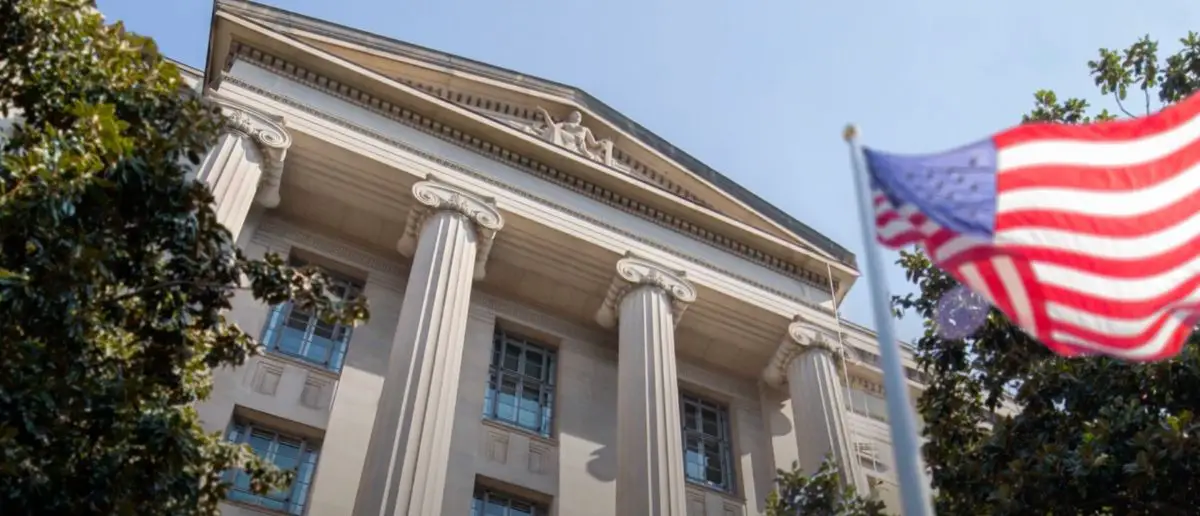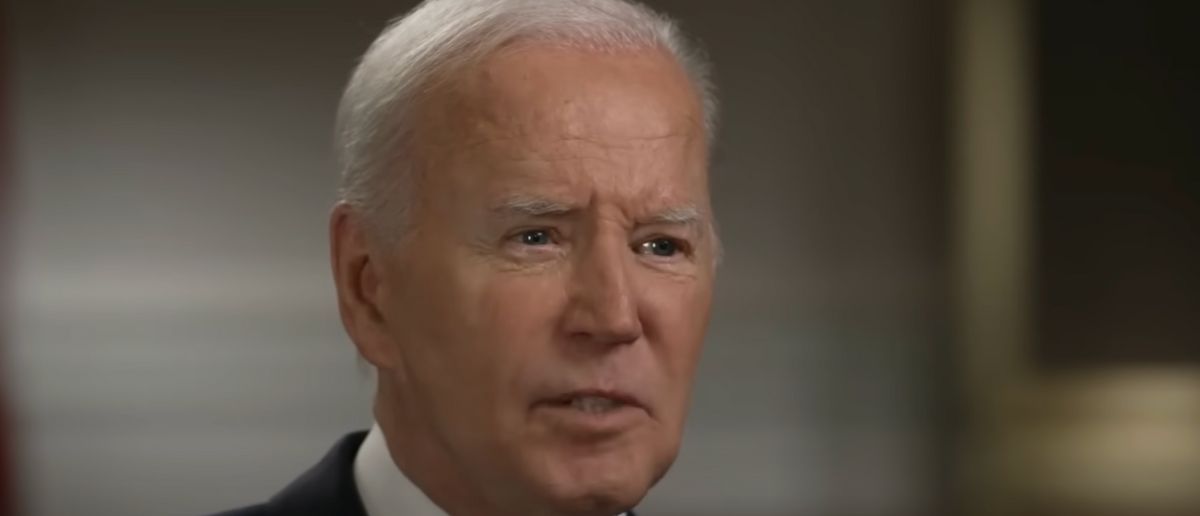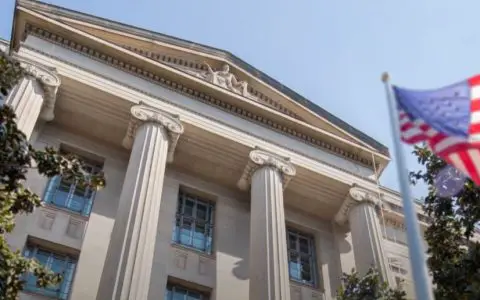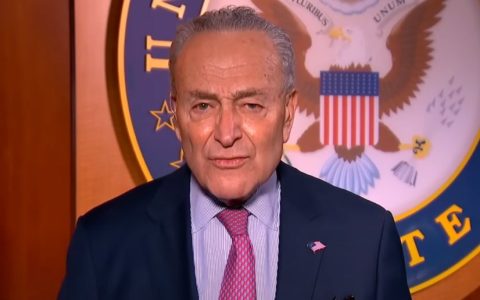
Radicals are attacking ICE agents and obstructing justice. But that won’t stand for long.
As a federal prosecutor just threatened ICE agent attackers with a harsh reality check.
U.S. Attorney Vows to Prosecute Attacks on ICE Agents Amid Tensions
Bill Essayli, the Interim U.S. Attorney for the Central District of California, announced on Wednesday a firm stance against individuals who assault Immigration and Customs Enforcement (ICE) agents. Speaking on Fox News, Essayli emphasized that his office would pursue legal action against anyone interfering with federal agents carrying out their duties.
On Monday, Los Angeles Mayor Karen Bass appeared at the site of an ICE operation, urging agents to leave the area. Her actions align with calls from some Democratic leaders to halt ICE activities in Los Angeles, citing a need to restore calm after riots erupted following a June ICE operation. Essayli criticized Bass, noting that as a former congresswoman, she had the opportunity to reform immigration laws during her tenure but failed to do so.
Essayli accused local leaders of fostering hostility toward federal authorities. He argued that such actions embolden individuals to obstruct or attack ICE agents, undermining the enforcement of federal immigration laws as mandated by Congress. He stressed that the presence of military support is essential to protect agents amid rising tensions.
Recent incidents highlight the growing challenges faced by federal agents. Over the weekend, attacks targeted a Border Patrol facility in McAllen, Texas, and an ICE office in Alvarado, Texas, with gunfire reported. Essayli noted a sharp increase in assaults on agents, including vehicle damage and physical interference, with his office charging suspects nearly daily.
The U.S. Attorney warned that escalating tactics by those opposing ICE operations could lead to further violence. He cited a recent incident in Texas where officers were shot, resulting in 10 arrests and federal indictments. Essayli vowed that anyone obstructing or harming agents would face arrest and federal prosecution.
Radical Progressive Resistance to Law and Order in Immigration Enforcement
The Trump administration has prioritized robust immigration enforcement, with ICE and Border Patrol agents at the forefront of deporting individuals who violate federal immigration laws. This approach has been met with significant pushback from radical progressive groups and local leaders, particularly in sanctuary cities like Los Angeles, San Francisco, and Chicago. These efforts to obstruct federal operations, often framed as protecting community trust, have raised concerns about undermining law and order.
In Los Angeles, Mayor Karen Bass’s recent confrontation with ICE agents exemplifies a trend among progressive leaders. By publicly demanding that ICE cease operations, Bass and others argue they are preventing community unrest. However, critics, including Interim U.S. Attorney Bill Essayli, contend that such actions encourage defiance of federal authority, potentially inciting violence against agents.
Sanctuary city policies, which limit cooperation with federal immigration authorities, have become a flashpoint. Cities like San Francisco have enacted ordinances prohibiting local law enforcement from assisting ICE, even in cases involving criminal aliens. These policies, championed by progressive lawmakers, are seen by supporters as a defense of vulnerable communities but are criticized by federal officials as obstructing lawful deportations.
The Trump administration’s deportation efforts have been praised for their efficiency and focus on removing individuals with criminal records. Data from ICE indicates that in 2024, over 70% of deportees had prior convictions, a testament to the administration’s targeted approach. By prioritizing public safety, the administration has garnered support from law enforcement unions and communities affected by illegal immigration-related crime.
However, progressive groups have escalated their tactics, organizing protests and, in some cases, riots physically interfering with ICE operations. In Portland, Oregon, activists have blockaded ICE facilities, while in Chicago, community groups have mobilized to disrupt deportation proceedings. These actions, often amplified by social media campaigns, aim to pressure local governments to resist federal mandates.
Recent violent incidents show the risks of this obstruction. In Texas, attacks on Border Patrol and ICE facilities have resulted in injuries and arrests, with federal agents facing gunfire and property damage. Such incidents have prompted the deployment of military support to protect agents, a move the Trump administration defends as necessary to maintain order and ensure the safety of federal personnel.
Radical progressive rhetoric often frames ICE as an oppressive force, with figures like Rep. Alexandria Ocasio-Cortez calling for the agency’s abolition. This narrative has fueled public demonstrations and, in some cases, justified interference with federal operations. Critics argue that this rhetoric inflames tensions, creating an environment where attacks on agents are seen as acceptable resistance.
The Trump administration’s response has been resolute, with officials like Essayli emphasizing accountability. By prosecuting those who assault or obstruct agents, the administration aims to deter further interference. This approach aligns with efforts to restore law and order, including increased funding for border security and streamlined deportation processes.
Legal battles have also emerged, with progressive-led cities challenging federal authority in court. Sanctuary jurisdictions have filed lawsuits to block ICE access to local jails, arguing that such cooperation violates state sovereignty. Federal courts, however, have largely upheld the government’s right to enforce immigration laws, bolstering the Trump administration’s position.
Public opinion remains divided. Polls from 2024 show that while 55% of Americans support stricter immigration enforcement, progressive strongholds like California and New York favor sanctuary policies. This polarization complicates efforts to find common ground, with each side accusing the other of undermining democratic principles.
The Trump administration’s deportation strategy has been credited with reducing illegal border crossings, with Customs and Border Protection reporting a 30% drop in apprehensions since 2023. By focusing on high-priority cases, such as those involving violent offenders, the administration has avoided widespread criticism of indiscriminate enforcement while maintaining a firm stance on immigration control.
Radical progressive obstruction, however, continues to pose challenges. From physical blockades to legal maneuvers, these efforts strain federal resources and delay deportations. The administration’s commitment to prosecuting interference sends a clear message: law enforcement will not be deterred. This resolve has resonated with supporters who view it as a necessary defense of national sovereignty.
Stay tuned to the DC Daily Journal.





